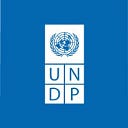Speeding up the digital revolution in Azerbaijan with public-private sector partnerships
A blog by: Dr. Nabil Seyidov, Head of Health Policy and Planning Department, Public Health and Reforms Center, Ministry of Health of the Republic of Azerbaijan, Nargiz Guliyeva, Head of Solutions Mapping, and Leyla Seyidzade, Head of Exploration
The healthcare sector in Azerbaijan was already struggling with insufficient resources before the outbreak of the COVID-19 pandemic in 2020. Indeed, healthcare has long been one of the country’s most underfunded sectors. According to the State Statistical Committee, government expenditure on healthcare represented only 3% of the state budget in 2018.
The workforce in this sector has been gradually declining, with the number of healthcare workers in the country decreasing from 103 to 87 per 10,000 people between 2010 and 2018. Recent years have also seen a significant drop in the number of paramedical staff. Prior to the pandemic, moreover, only 933 doctors in Azerbaijan were specialized in hygiene and epidemiology.
These challenges and shortages have only grown more severe since the pandemic began, but meanwhile, the Government of Azerbaijan has undertaken remarkable efforts to tackle the immediate challenges of containing the spread of the virus by introducing timely and effective measures.
Considering the burden of disease and a significant increase in the number of patients, the establishment of model type hospitals in several locations of the country, more healthcare workers including resident physicians and medical students as well as the nursing staff were recruited to help tackle the pandemic.
And in parallel with this response, the Government partnered with UNDP on an initiative aimed at rapidly deploying innovative solutions to help healthcare professionals and the public to cope with the pandemic. This initiative soon led to innovations like the coronavirus ‘self-checker bot’ and the ‘Video Doktor’ app to enable remote medical consultations and reduce the need for close contact between healthcare workers and patients.
The Ministry of Health, with UNDP’s support, also led efforts to develop an e-platform to provide healthcare professionals with free online training courses and certification programmes. Thanks to funding from Equinor, one of the largest private sector companies operating in Azerbaijan, the Ministry of Health and UNDP were soon able to develop important and timely courses for medical professionals for the e-platform, together with numerous other educational resources.
As a result of this partnership with the private sector, the healthcare e-platform now offers over 55 free courses and certification programmes, including training in preventing infection and in the diagnosis and treatment of COVID-19 and other acute respiratory infections, as well as numerous other educational resources.
Some 550 healthcare professionals have now successfully completed courses on the platform, making them better prepared to help a greater number and range of patients. By completing these courses, healthcare personnel can earn officially recognized credits for continuing their education.
Importantly, the platform is now being further integrated as a valuable additional element in Azerbaijan’s system for medical training.
This is because reforms currently being implemented will soon require all doctors to gain a certain number of credits within five years of their accreditation exam. These credits can be earned by participating in courses organized by the Ministry of Health and other relevant public institutions, as well as by attending conferences, and joining designated learning activities.
Taking up the opportunities afforded by these reforms, we are now developing courses for the platform through which doctors can earn the mandatory credits required by the Ministry of Health.
We hope to see these training courses completed and available by the end of this year. As ever, though, achieving this goal will depend on what funding is made available.
At UNDP’s Accelerator Lab, one of the lessons we have learned from the pandemic is that public-private cooperation can prove a crucial means of mounting a sustainable response to major challenges such as COVID-19.
These solutions are not only helping to expand the digital capacity of Azerbaijan’s healthcare sector in response to the pandemic but can also be further scaled up to support this sector in the long term.
As such, the upgrades we are investing in today will help build more resilient economies for the future.
